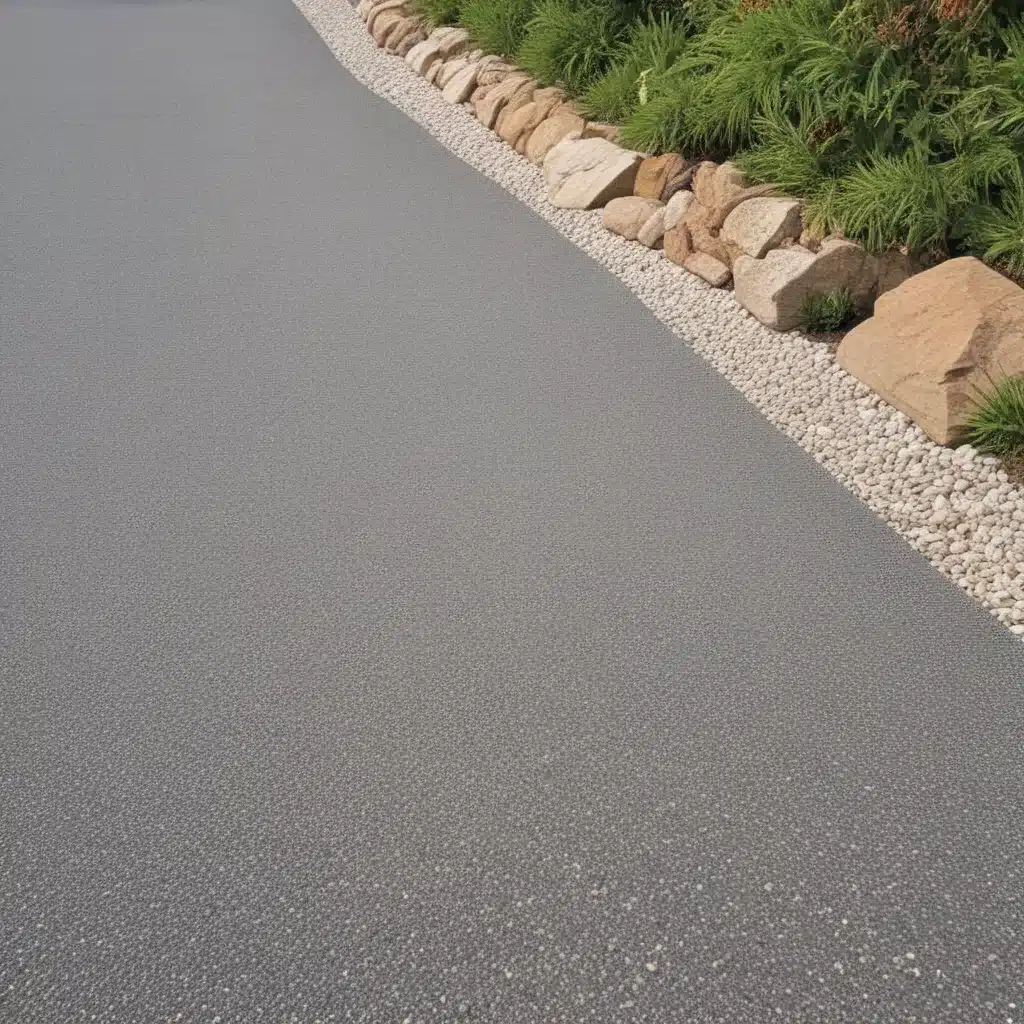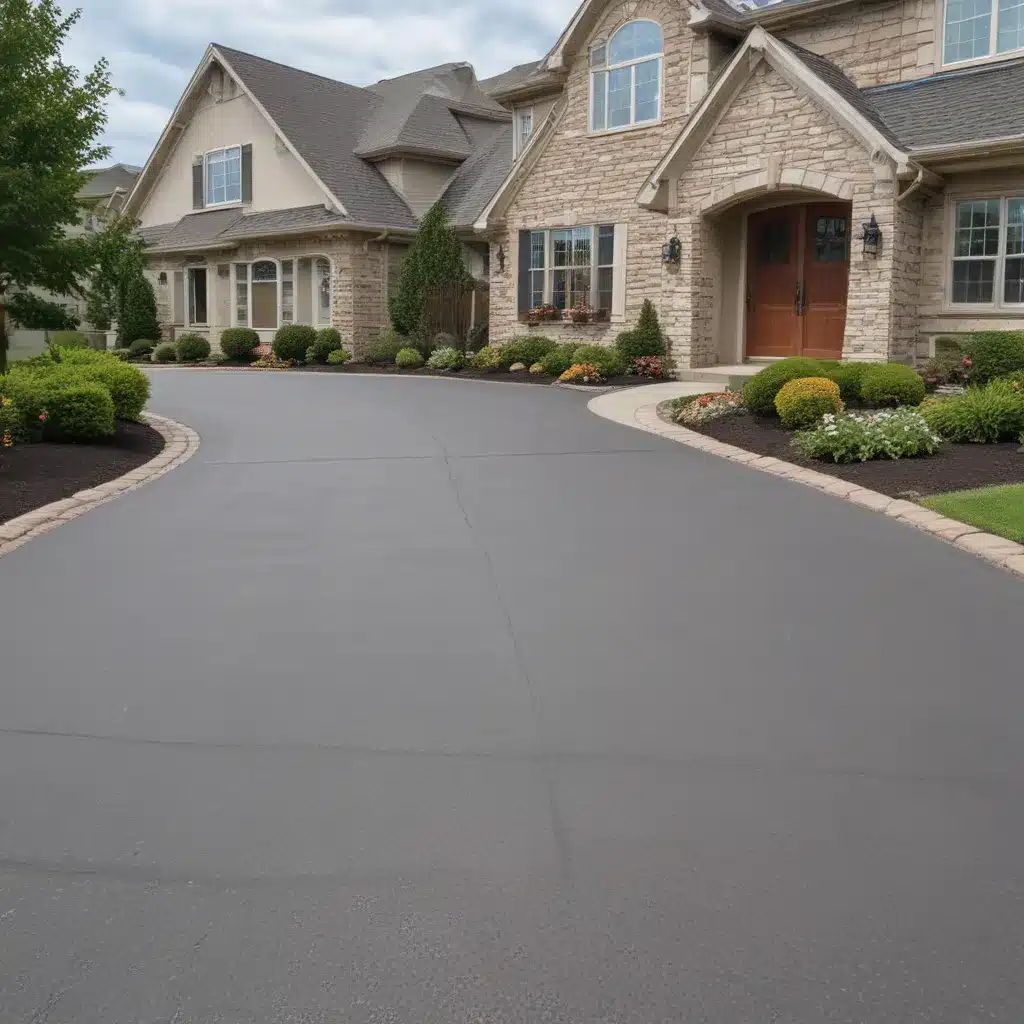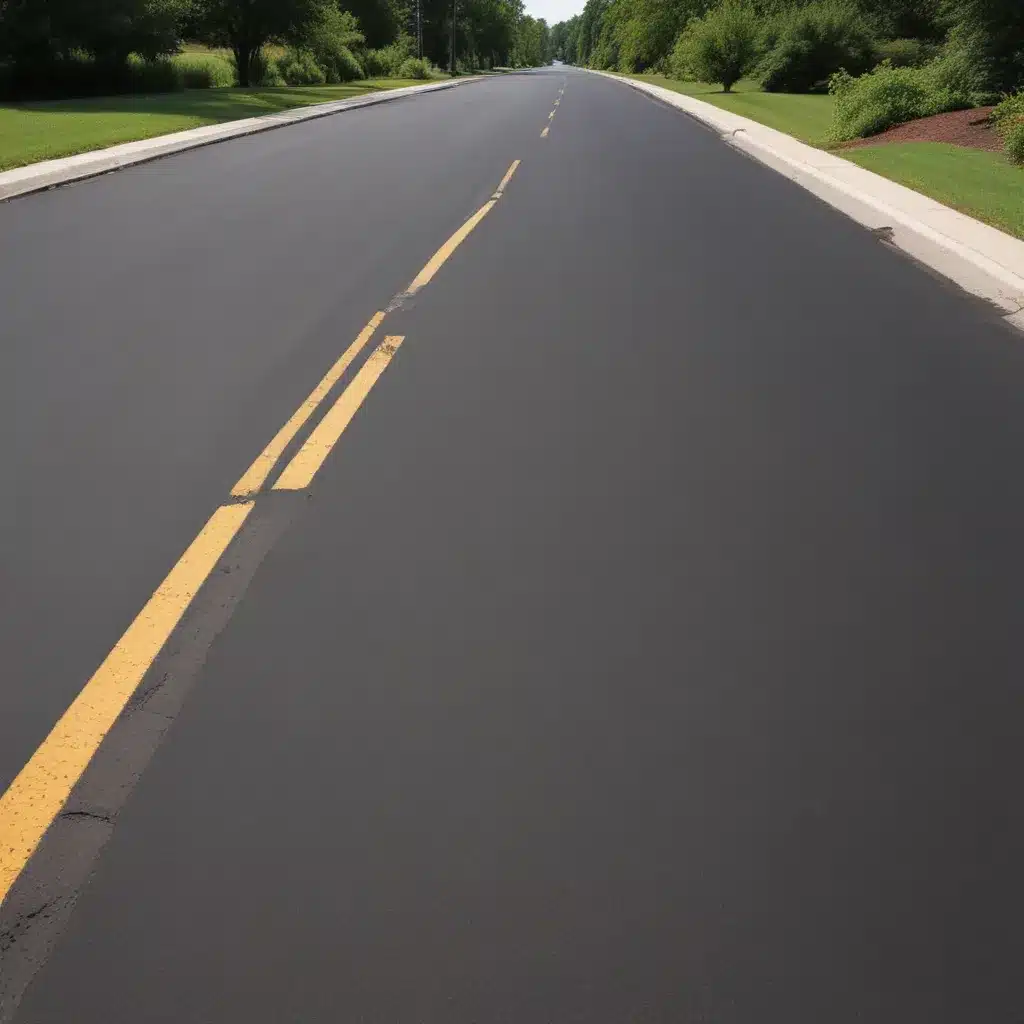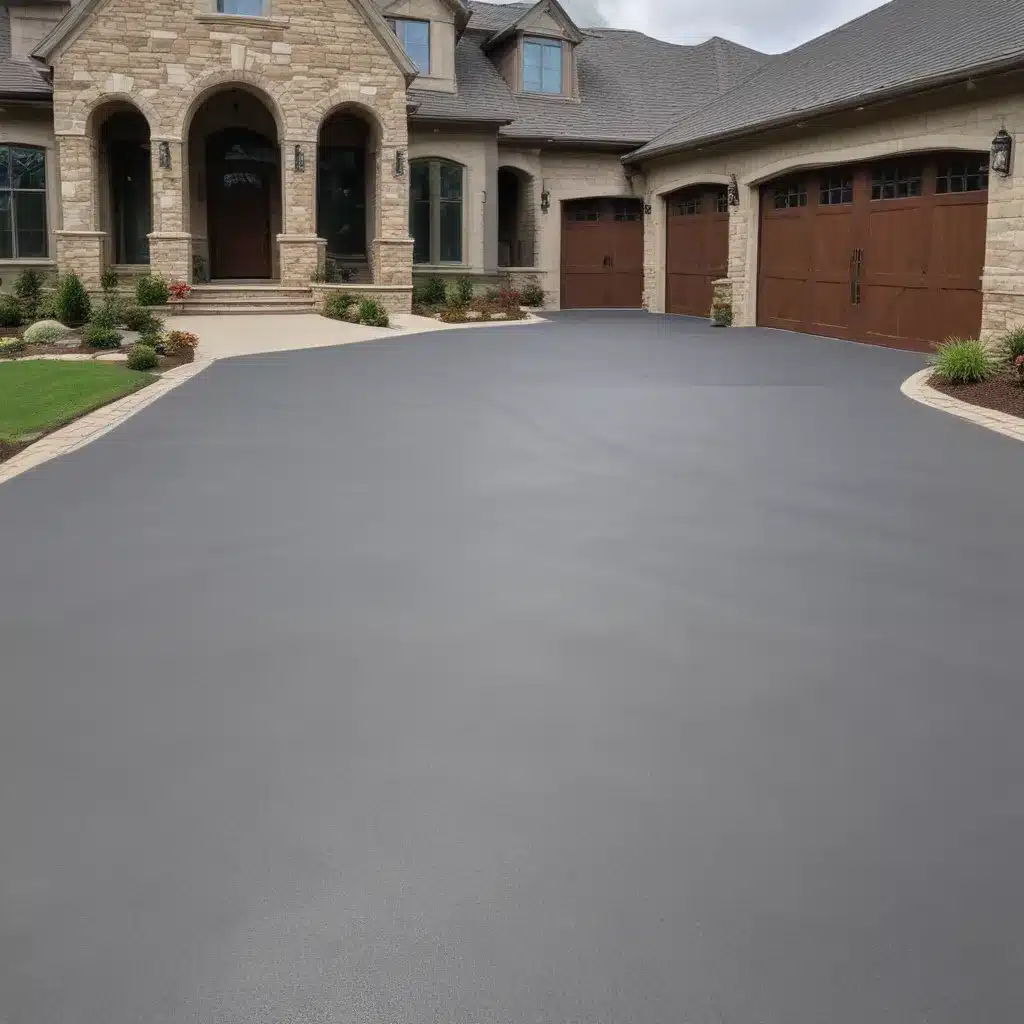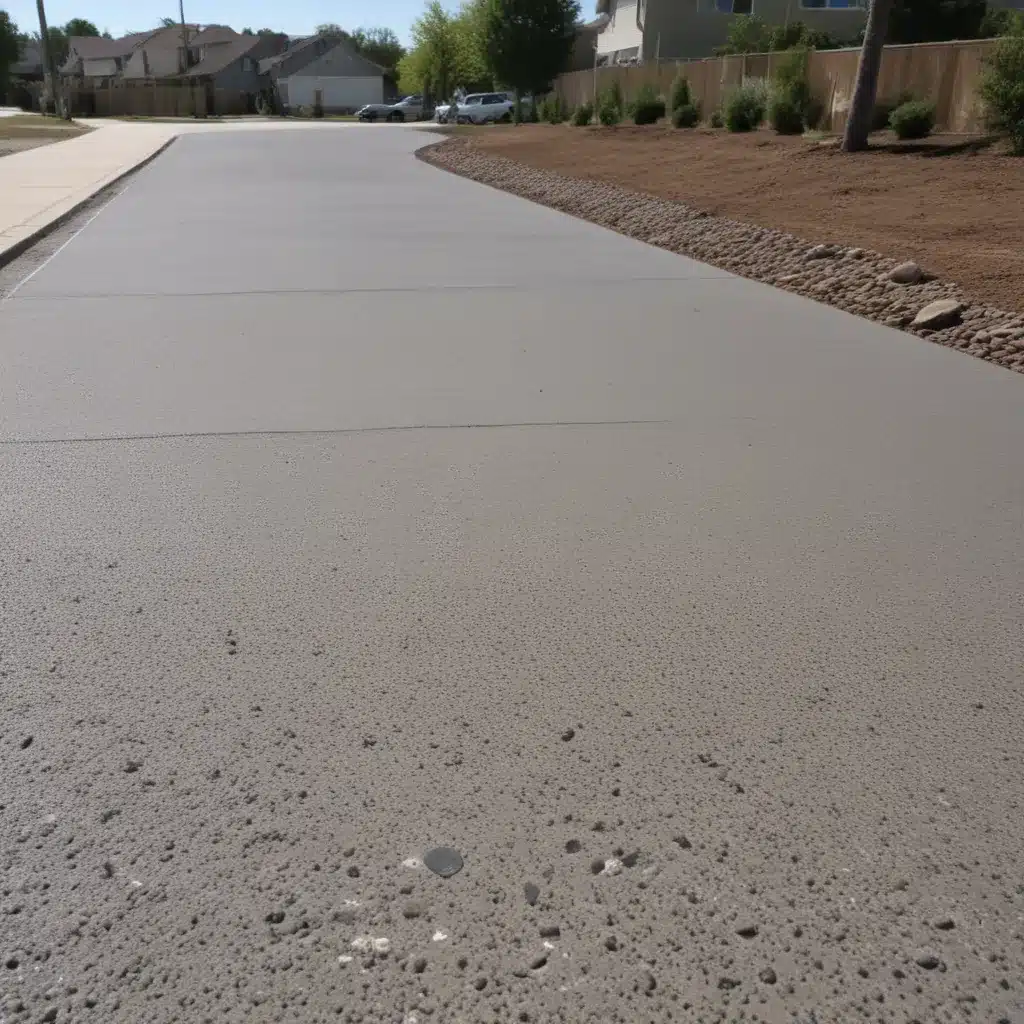The Allure of Gravel Driveways
I’ve always been fascinated by the timeless appeal of gravel driveways. There’s just something about the sound of crunching gravel underfoot, the way the light dances across the surface, and the classic, rustic aesthetic that captivates me. As the owner of a driveway services company, I’ve had the privilege of helping countless homeowners bring their gravel driveway visions to life. And along the way, I’ve encountered a myriad of questions, concerns, and misconceptions about this versatile paving material.
In this in-depth article, I’ll be addressing the most common queries I receive about gravel driveways, drawing upon my years of experience and expertise to provide you with comprehensive answers. Whether you’re considering a gravel driveway for your home or simply curious about this time-honored paving option, I’m here to shed light on all the nuances and considerations that come with it.
What are the Key Benefits of Gravel Driveways?
The first, and perhaps most obvious, benefit of gravel driveways is their timeless, charming appearance. The gentle crunching sound as you walk or drive across a gravel driveway is a quintessential countryside melody, evoking images of rustic farmhouses and quaint country lanes. But the appeal of gravel goes far beyond mere aesthetics.
One of the primary advantages of gravel driveways is their durability and low maintenance requirements. Gravel is an extremely hardy material that can withstand the elements, from heavy rains to blistering heat, without succumbing to cracking or deterioration. In contrast to concrete or asphalt, which can require regular sealing and resurfacing, a well-installed gravel driveway can last for decades with minimal upkeep.
Moreover, gravel driveways offer superior drainage capabilities compared to their paved counterparts. The porous nature of gravel allows water to percolate through the surface, reducing the risk of puddles and flooding. This not only enhances the overall appearance of your driveway but also helps to prevent the accumulation of ice during the winter months, making it a safer option for both pedestrians and vehicles.
Another key benefit of gravel driveways is their cost-effectiveness. Gravel is generally a more affordable paving material than concrete or asphalt, and the installation process is typically less labor-intensive. This makes gravel an attractive choice for homeowners looking to upgrade their driveway without breaking the bank.
Addressing Common Gravel Driveway Concerns
Of course, with any paving option, there are bound to be some concerns and misconceptions. Let’s dive into some of the most common questions I’ve encountered about gravel driveways and provide you with the facts.
Concern: Gravel Driveways are Difficult to Maintain
One of the most prevalent misconceptions about gravel driveways is that they require constant, arduous maintenance. While it’s true that gravel driveways do require some upkeep, the maintenance involved is relatively minimal compared to other paving materials.
The key to maintaining a gravel driveway is regular raking and top-dressing. This involves periodically running a rake over the surface to redistribute the gravel and fill in any divots or depressions that may have formed. Depending on the amount of traffic and weather conditions, this task may need to be performed a few times per year.
Additionally, it’s important to periodically replenish the gravel by adding a fresh layer to the surface. This helps to maintain the desired depth and ensures that the driveway continues to function optimally. With proper maintenance, your gravel driveway can continue to look and perform its best for many years to come.
Concern: Gravel Driveways are Prone to Weed Growth
Another common concern about gravel driveways is the potential for weed growth. It’s true that the porous nature of gravel can provide an inviting environment for weeds to take root. However, there are several strategies you can employ to mitigate this issue.
One effective approach is to install a weed-blocking fabric or membrane beneath the gravel layer. This creates a physical barrier that prevents weeds from taking hold, while still allowing water to percolate through. Additionally, regularly applying a herbicide or spot-treating any emerging weeds can help to keep your gravel driveway looking neat and tidy.
It’s important to note that some level of weed growth is to be expected, as gravel driveways are, by nature, a more natural and permeable surface. However, with a bit of proactive maintenance, you can easily keep these unwanted plants at bay and enjoy the timeless appeal of your gravel driveway.
Concern: Gravel Driveways are Difficult to Shovel in the Winter
The next common concern I often hear about gravel driveways is the challenge of snow and ice removal during the winter months. It’s true that the loose, uneven surface of gravel can make shoveling and plowing more challenging than a smooth, paved driveway.
However, there are a few strategies you can employ to make winter maintenance a breeze. First and foremost, consider investing in a snow plow or brush attachment for your lawnmower or ATV. These specialized tools are designed to effortlessly clear gravel surfaces, ensuring that your driveway remains accessible and safe throughout the winter.
Additionally, you can use ice-melting products, such as salt or sand, to prevent the buildup of ice and create traction on your gravel driveway. Just be mindful of the potential impact on nearby plants and landscaping.
With the right tools and a bit of seasonal maintenance, you can keep your gravel driveway clear and safe, even in the midst of winter’s harshest conditions.
Gravel Driveway Installation: A Closer Look
Now that we’ve addressed some of the most common concerns about gravel driveways, let’s take a closer look at the installation process and what it entails.
The first step in installing a gravel driveway is to prepare the site. This typically involves excavating the existing surface, removing any debris or vegetation, and ensuring a level, stable foundation. Proper site preparation is crucial, as it lays the groundwork for a long-lasting, trouble-free driveway.
Next, a geotextile fabric or weed barrier is laid down to prevent weed growth and maintain the integrity of the gravel layer. This is followed by the placement of a sturdy base material, such as crushed stone or compacted gravel, which provides a solid foundation for the top layer.
The final step in the installation process is the application of the gravel itself. The depth and size of the gravel can vary depending on the intended use and desired aesthetic, but a typical gravel driveway is around 4-6 inches deep. It’s important to use a high-quality, angular gravel that interlocks to create a stable, uniform surface.
Once the gravel is in place, it’s crucial to compact it thoroughly using a vibratory plate compactor or roller. This ensures that the gravel is firmly set and less prone to shifting or displacement over time.
Throughout the installation process, attention to detail and proper techniques are essential to ensure the long-term performance and durability of your gravel driveway. At our driveway services company, we take great pride in our meticulous approach, ensuring that each gravel driveway we install is a work of art that will stand the test of time.
Customizing Your Gravel Driveway
One of the most appealing aspects of gravel driveways is the ability to customize and personalize them to suit your unique style and preferences. From the choice of gravel type to the incorporation of decorative elements, there are countless ways to make your gravel driveway truly your own.
Gravel Varieties: Exploring the Options
When it comes to gravel, the options are truly endless. From the classic, earthy tones of crushed stone to the sleek, modern look of pebbles, the choice of gravel can have a significant impact on the overall aesthetic of your driveway.
For a warm, rustic vibe, consider using a mixture of crushed limestone or river rock in hues of beige, tan, and gray. Alternatively, if you’re drawn to a more contemporary look, you might opt for a finer, more uniform gravel, such as pea gravel or decomposed granite, which can create a smooth, polished appearance.
It’s worth noting that the size and shape of the gravel can also affect its performance and durability. Larger, angular gravel tends to interlock more effectively, providing a more stable and secure surface, while smaller, rounded pebbles may require more frequent maintenance to keep them in place.
Incorporating Decorative Elements
Beyond the gravel itself, there are countless ways to add personalized touches and decorative elements to your driveway. One popular option is the use of border materials, such as cobblestones, pavers, or even landscape timbers, to define the edges and create a distinct visual contrast.
Another creative approach is the integration of landscape features, such as low-growing plants, stepping stones, or even water features. These elements can not only enhance the aesthetic appeal of your driveway but also contribute to a more cohesive and harmonious overall landscape design.
Ultimately, the customization of your gravel driveway is limited only by your imagination. Whether you prefer a sleek, modern look or a charming, rustic aesthetic, the versatility of gravel allows you to create a truly one-of-a-kind outdoor space that reflects your personal style and tastes.
Real-Life Case Studies: Gravel Driveway Transformations
To bring these concepts to life, let’s take a look at a few real-life case studies showcasing the remarkable transformations that can be achieved with gravel driveways.
Case Study 1: The Farmhouse Retreat
One of our recent projects involved a charming farmhouse nestled in the rolling hills of the countryside. The homeowners, a young couple looking to create a serene, rustic retreat, had inherited the property from their grandparents and were eager to put their own unique stamp on it.
After carefully considering their options, they decided that a gravel driveway would be the perfect complement to the property’s historic character. We worked closely with them to select a warm, earthy blend of crushed limestone, which perfectly mirrored the weathered wood and natural stone of the farmhouse’s exterior.
To add a touch of whimsy and personalization, we incorporated a meandering path of oversized stepping stones, leading visitors from the driveway to the front door. The result was a truly enchanting outdoor space that seamlessly blended the old and the new, creating a welcoming and inviting entry point to their beloved country retreat.
Case Study 2: The Modern Minimalist
In stark contrast to the cozy farmhouse, our next case study involves a sleek, contemporary home situated in the heart of the city. The homeowners, a young professional couple with a penchant for clean lines and minimalist design, were determined to create a driveway that would complement the modern aesthetic of their abode.
After careful consideration, they opted for a gravel driveway made up of finely crushed decomposed granite, which provided a smooth, uniform surface that echoed the home’s sharp, angular architecture. To add a touch of visual interest, we incorporated a series of strategically placed boulders, which served as both functional and decorative elements.
The result was a stunning, low-maintenance driveway that seamlessly integrated with the property’s overall design, creating a cohesive and visually striking outdoor environment. The homeowners were thrilled with the transformation, remarking that the gravel driveway had exceeded their expectations and become a true focal point of their urban oasis.
Conclusion: Embracing the Timeless Appeal of Gravel Driveways
As I reflect on the countless gravel driveway projects I’ve had the pleasure of working on over the years, I’m struck by the enduring appeal and versatility of this paving material. From the rustic charm of country farmhouses to the sleek, modern aesthetic of urban dwellings, gravel has the unique ability to adapt and enhance any architectural style or landscape design.
But beyond its aesthetic merits, the true beauty of gravel driveways lies in their practical benefits. Their durability, low maintenance requirements, and superior drainage capabilities make them a smart and sustainable choice for homeowners looking to upgrade their outdoor spaces.
And as I’ve outlined in this comprehensive article, the common concerns and misconceptions surrounding gravel driveways can be easily addressed with the right knowledge and approach. Whether it’s managing weed growth, navigating winter weather, or customizing the look and feel of your driveway, there are plenty of strategies and solutions available to ensure a seamless and successful gravel driveway installation.
So, if you’re considering a gravel driveway for your home, I encourage you to embrace the timeless allure of this versatile paving option. With a little bit of planning and the right team of experts by your side, you can transform your outdoor space into a true work of art – one that will continue to captivate and delight for years to come.
And if you’re in the Warrington area and looking for a reliable driveway services company to bring your gravel driveway dreams to life, I’d be more than happy to chat. You can find us at https://www.driveways-warrington.co.uk/ – we’d love to hear from you and discuss how we can help make your vision a reality.

